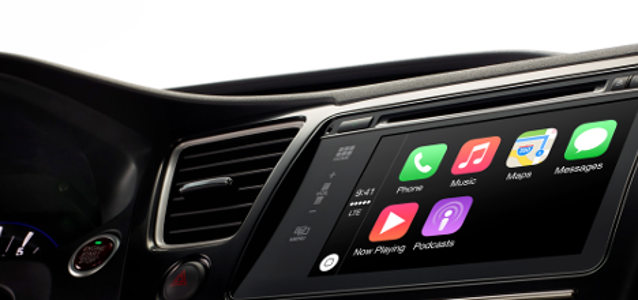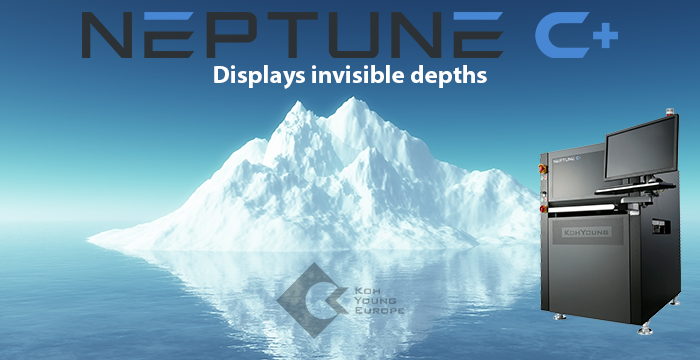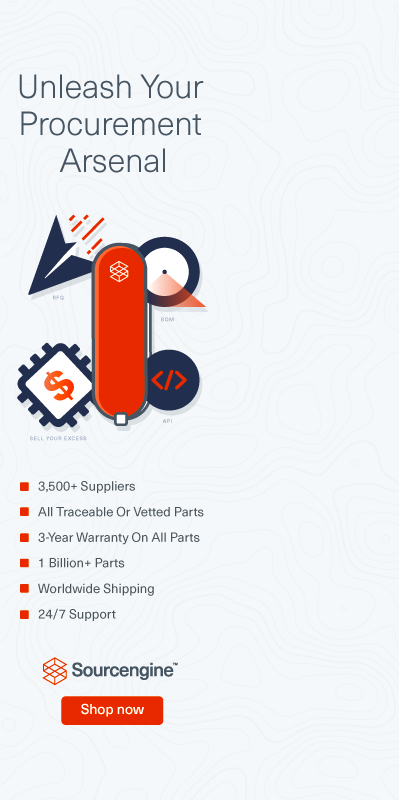
© apple
Analysis |
Traditional onboard car navigation to die?
Do Apple CarPlay and Android Auto signal the end for traditional onboard car navigation systems?
As could be seen at CES in Las Vegas at the beginning of January, Apple and Google clearly have the automotive industry in their cross hairs. Having revolutionized the computer, portable audio and smartphone markets, both companies now look set to bring their expertise to the automobile, with significant implications for drivers, automakers and traditional suppliers of car audio and navigation systems. Semicast Research has looked at how Apple’s CarPlay and Google’s Android Auto could impact the market for traditional onboard car navigation systems.
Onboard car navigation systems store the mapping data internally; traditionally media formats such as CD and DVD were most common, but system design has moved almost entirely to HDD, solid state drives and SD Card storage in the last three years. While technological development in the automotive industry has been rapid, it has not come close to the rate of change seen in the consumer sector, which has witnessed the introduction of the iPod in 2001, the iPhone in 2007 and the iPad in 2010.
Together Apple and Google have transformed the consumer experience for music playback by the integration of music storage into their mobile operating systems, iOS and Android, along with the integration of free navigation functions such as Apple Maps and Google Street View. Both iOS and Android also support downloadable apps, which has enabled development of streaming audio services like Spotify and a host of free navigation apps.
With smartphone and tablet capacity now up to 128GB and 4G/LTE cellphone coverage and free Wi-Fi rising rapidly, downloading a free 2GB navigation app holding an entire country’s navigation database onto a smartphone or tablet is now a perfectly sensible use of storage, especially as an alternative to a navigation system which may cost north of a thousand dollars and look out of date in twelve months.
Having transformed the audio, cellphone and PC markets, Apple and Google have now firmly set their sights on automotive. Thus far both companies have had little opportunity to penetrate the automotive market, with everyday consumer technologies as common as USB ports and Wi-Fi still rarely seen in the automobile. However the automotive industry is now succumbing to the power of market forces, as the development of CarPlay and Android Auto demonstrate.
One critical issue that Semicast regularly comments on is that the development timescales and lifecycles for automotive, communications and consumer technology do not align. The first generation of GM’s OnStar is a great example of this, based on analog cellphone technology that was obsolete long before the vehicle it was installed in. Colin Barnden, Principal Analyst at Semicast Research and study author, commented “As CarPlay and Android Auto demonstrate, Apple, Google and the auto industry have learnt from the OnStar experience and will overcome the timescale issue not by integrating consumer technology into the car, but by interfacing it.”
The concept underpinning both CarPlay and Android Auto is that the technology will be carried around by the driver in the form of their smartphone or tablet, which also stores their music, playlists, videos and provides navigation. The interface from the phone or tablet to the vehicle can be provided by USB or Wi-Fi, both firmly established standards, and the car’s center stack display mirrors that of the phone or tablet. CarPlay and Android Auto provide the software interface between the smartphone or tablet and the car, along with compliance to the legal and safety requirements for the automotive market.
This points to the next generation of automotive entertainment systems comprising of a video display with a combination of touchscreen, gesture recognition and steering wheel controls and interface to voice applications such as Apple’s Siri. Aftermarket systems from suppliers such as Alpine, JVC Kenwood, Parrot and Pioneer are already available, with almost all of the major vehicle makers lined up to support CarPlay and Android Auto, including BMW, Chrysler, Fiat, Ford, Honda, Hyundai/Kia, Mercedes-Benz, Nissan, Peugeot-Citroen and Toyota.
Semicast thus sees CarPlay and Android Auto as signaling the long term decline of the traditional onboard embedded navigation systems market, just as navigation apps on smartphones have significantly reduced demand for dedicated portable navigation devices. Barnden summed up “The big picture is clear; Apple and Google, two technology giants with a combined market cap of about one trillion dollars, now have a foothold in the automotive market too.”






